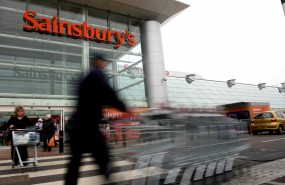San Francisco Fed chief: Brexit is not a big deal for the US
American economy still on track according to John Williams, despite political uncertainty
- Any market activity has been "well within expectations" so far says Williams
- The successful economist was speaking during an interview with Marketwatch
Respected economist and current president of the San Francisco Federal Reserve, John Williams, has played down the impact of Britain's decision to leave the European Union on the United States' economy, in an interview with Marketwatch.
Williams has previously worked alongside Janet Yellen during her stint under US president Bill Clinton.
He referred to the uncertainty that surrounds the Brexit issue, remarking that it is difficult to twll where things stand at the moment, and where they are heading, but assures that things are not as bad as they seem.
"There is just so much uncertainty about when and how that (Britain's departure from the bloc) will occur, how they are going to shape a new agreement between the UK and other countries around trade and immigration and all these open issues, and, of course, added to that is the uncertainty about who will be leading the Conservative Party on this process," Williams told Marketwatch.
He says that most of the market movements have played as predicted, which is good news for most parties.
"I think all of those have played out more or less as you expected in a kind of more normal market reaction... even though there is a lot of uncertainty, a lot of open questions that it will take time to answer. The market reaction, although it got a lot of attention, hasn’t really been any bigger that you might expect, given the news."
Williams continued to play down the effects on Brexit, particularly with regard to the US economy, when he was asked about what the reaction is going to be. He emphasised the recovery of various aspects of the economy, including the creation of jobs and an increase in inflation.
"I still expect unemployment to keep coming down, inflation to keep moving back to 2%, that hasn’t changed much at all."
"In the end, the decision about what monetary policy will do, will be the FOMC’s decision, we’ll have to be watching the economic developments, the financial developments, over the next upcoming period of time and make those decisions based on how we’re doing and how we see progress on our goals."
The San Francisco Fed head also described the shock that he felt when the result became known that the Leave campaign had triumphed, but emphasised the importance of a "business as usual" mindset.
"Even though I had talked to a lot of people who said this is a 50-50 thing, you know, don’t listen to the betting, don’t believe what you read in the newspapers, this is going to be close, I think it was still a shock that it happened."
"I think it was still a shock that it happened" John Williams
"Even though I think it is a significant event, I am not trying to downplay Brexit, I’m just saying that with a little bit of time, people have kind of gotten more reasonable and kind of sharpened their pencils and said “ok what does this really mean for Britain, Europe and the global economy?"
Concerning the current issue of rate hikes in the US, Williams said that asset purchases or quantitative easing would be his tool of choice with rates so close to zero. If the economy were to stumble in his eyes, leaving interest rates alone would also be an important issue.
"The market still anticipates that over the next several years, interest rates will move up, very slowly, but will move up."
"I think that would, like we’ve seen recently where market expectations following Brexit where the market was expecting the Fed would go more gradually, that pushes down long-term rates, that pushes down mortgage rates, that pushes down other buying rates and that helps stimulate spending."


